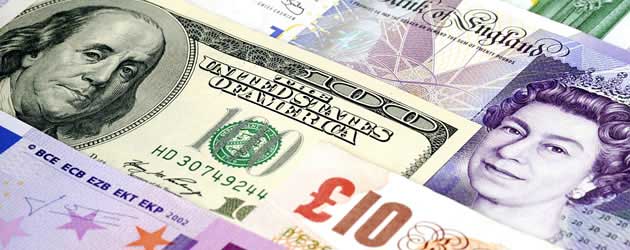 There was a lot riding on this morning’s UK services PMI. After this week’s less-than-impressive manufacturing and construction PMI, the services sector was the only thing standing between the UK and an unprecedented triple-dip recession – and for once the news was positive.
There was a lot riding on this morning’s UK services PMI. After this week’s less-than-impressive manufacturing and construction PMI, the services sector was the only thing standing between the UK and an unprecedented triple-dip recession – and for once the news was positive.
The Pound Sterling Exchange Rate was in the region of 1.5080 against the US Dollar as of 10:04 am
Figures compiled by Markit Economics and the Chartered Institute of Purchasing and Supply have shown that the UK service sector grew in March, by the most significant amount for seven months.
Although economists forecast that the gauge would edge down slightly from February’s 51.8 to 51.5, it actually rose to 52.4 – edging steadily away from the 50 mark which separates growth from contraction.
The growth recorded was made more impressive as it occurred in spite of poor weather weighing on activity.
The report detailed a significant rise in new businesses, offering support to service sector output, and made reference to improved client confidence.
This result, especially coming after two previous months of solid growth, could hardly have come at a better time.
As Markit’s chief economist Chris Williamson noted: ‘The government and Bank of England will breathe sighs of relief in seeing signs of a gathering upturn in the service sector during March, which looks set to have helped the UK avoid a triple-dip recession by the narrowest of margins. Business activity grew in March at the fastest rate since the Olympics related upturn seen last August, providing a much needed boost to the economy in the first quarter after disappointing surveys for the smaller manufacturing and construction sectors.’
Williamson went on to state: ‘With growth of the service sector offsetting contractions in manufacturing and construction, the PMI survey data collectively point to the economy having grown by a mere 0.1% in the first three months of the year. This is clearly a far from satisfactory pace of growth, although it is likely that the poor weather caused disruptions to many businesses in recent months, meaning the underlying recovery trend is likely to be stronger than the recent data suggest. We would therefore expect to see faster economic growth in the second quarter and, barring any surprises such as a further worsening of the eurozone crisis or severe weather, monetary policy is set to be on hold for the foreseeable future.’
After the report was released the Pound gained slightly on the US Dollar and Euro. However, with the Bank of England and European Central Bank due to issue their rate announcements later today Sterling gains were limited.
With the majority of economists expecting the BoE to leave the asset purchase target and key rate unchanged, the commentary accompanying the announcement will be the main point of interest.

Comments are closed.